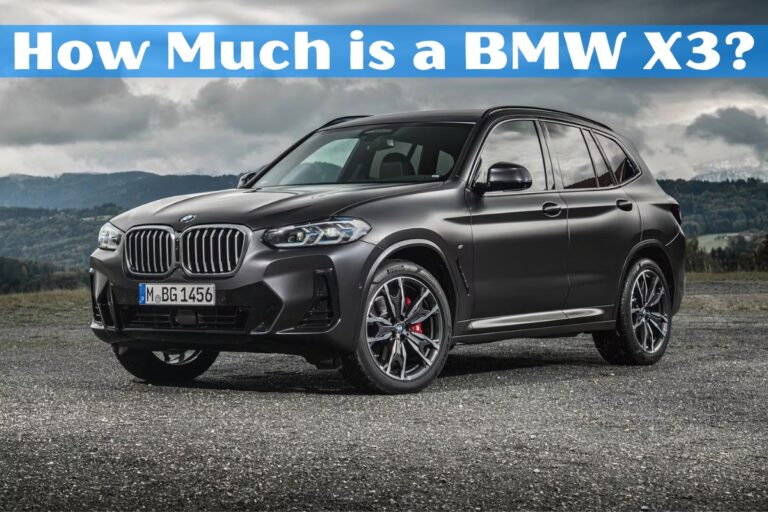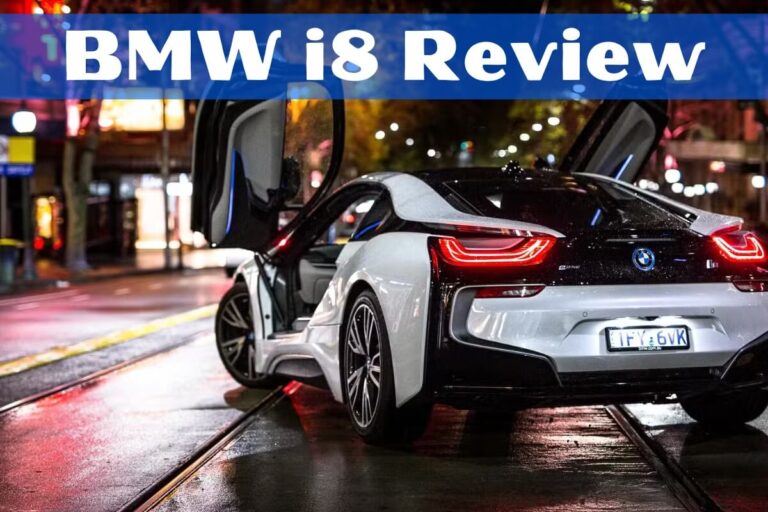How Many Miles Do BMWs Last?

If you’re in the market for a luxury vehicle, you’ve likely come across BMW – a brand renowned for its performance, style, and prestige. But one of the key questions many prospective BMW owners have is: How many miles can I expect a BMW to last? In this comprehensive guide, we’ll dive into the typical lifespan of BMW vehicles, identify the most reliable models, discuss maintenance strategies to maximize their longevity, and explore the cost considerations of owning a high-mileage BMW.
Average Lifespan of a BMW
When it comes to the overall lifespan of a BMW, the numbers are quite impressive. According to industry experts, most BMW models are built to last well over 200,000 miles, with some owners even reporting their vehicles reaching the 250,000-mile mark or beyond with proper care and maintenance.
However, it’s important to note that the actual mileage a BMW can achieve will vary depending on several factors, including:
Driving Habits: Aggressive driving, frequent towing, and other demanding usage patterns can take a toll on a BMW’s components and reduce its overall lifespan.
Maintenance Routine: Staying on top of the manufacturer-recommended maintenance schedule, using genuine BMW parts, and addressing issues promptly are crucial for maximizing a BMW’s longevity.
Model and Engine Type: Some BMW models and engine configurations are known to be more durable than others. We’ll explore this in more detail in the next section.
On average, BMW owners can expect their vehicles to provide reliable service for 10-15 years, provided they maintain them diligently. This is a testament to the brand’s commitment to quality engineering and the robust construction of its vehicles.
Most Reliable BMW Models
While BMW is generally regarded as a reliable luxury brand, some models within its lineup are known to be more durable and long-lasting than others. Here’s a closer look at some of the most reliable BMW models:
BMW 318i
The BMW 318i, part of the beloved E46 generation produced before 2002, is often cited as one of the brand’s most reliable and long-lasting models. This entry-level sedan is powered by a 2.0-liter engine that is relatively simple in design and can withstand the test of time. With proper maintenance, many 318i models have been known to surpass the 200,000-mile mark.
BMW 330i ZHP
For those who want a bit more performance, the BMW 330i ZHP is an exceptional choice. This model, exclusive to the E46 generation, comes equipped with a more powerful engine, upgraded suspension, brakes, and other performance-enhancing features. While slightly more complex than the 318i, the 330i ZHP is still considered a reliable option that can provide years of enjoyment.
BMW 1 Series
The BMW 1 Series, particularly the earlier models in the E81 and E82 generations, have demonstrated impressive longevity. These compact and sporty vehicles, powered by both gasoline and diesel engines, have a reputation for being well-engineered and durable, provided owners stay diligent with their maintenance routines.
It’s worth noting that while these models have a strong reputation for reliability, no car is immune to potential issues, especially as the odometer climbs higher. Regular inspections, timely repairs, and the use of genuine BMW parts are essential for extending the lifespan of any BMW.
Maintaining a BMW for Maximum Lifespan
Owning a BMW is a rewarding experience, but it also comes with a heightened responsibility to maintain the vehicle properly. Following the manufacturer’s recommended maintenance schedule and using genuine BMW parts and accessories are crucial steps in ensuring your BMW reaches its full potential in terms of longevity.
Sticking to the Maintenance Schedule
BMW’s maintenance guidelines are designed to keep your vehicle running at its best, and neglecting these recommendations can lead to accelerated wear and tear on various components. From regular oil changes and brake inspections to more comprehensive services, staying on top of your BMW’s maintenance is essential for maximizing its lifespan.
Genuine BMW Parts and Accessories
When it comes time for repairs or upgrades, it’s essential to use genuine BMW parts and accessories. These components are designed specifically for your BMW and are engineered to work seamlessly with the vehicle’s systems. Using aftermarket or non-BMW parts may save you money in the short term, but it can compromise the long-term reliability and performance of your vehicle.
Driving Habits That Extend Lifespan
Your driving habits can also play a significant role in how long your BMW lasts. Avoiding aggressive acceleration, excessive braking, and other demanding driving maneuvers can help minimize wear and tear on the engine, transmission, and suspension components. Additionally, allowing your BMW to warm up properly before setting off and not letting it idle for extended periods can help preserve its internal components.
By following the manufacturer’s recommendations, using genuine parts, and practicing mindful driving, you can help ensure your BMW provides years of reliable and enjoyable service.
Costs of Owning a High-Mileage BMW
While BMWs are known for their exceptional build quality and engineering, the reality is that they can be more expensive to maintain than some other luxury or non-luxury vehicles, especially as the odometer climbs higher.
Repair and Maintenance Expenses
BMW parts and labor costs tend to be higher than average due to the brand’s focus on precision engineering and the specialized nature of its vehicles. As a BMW accumulates more miles, the potential for more frequent repairs and the need for preventative maintenance can add up quickly. Replacing worn-out components like brakes, suspension parts, or even the engine or transmission can be a significant investment.
Strategies for Minimizing Ownership Costs
To help offset the higher maintenance costs associated with a high-mileage BMW, consider the following strategies:
- Finding a BMW-specialized mechanic or service center that can provide quality work at more competitive rates than the dealership.
- Staying vigilant about preventative maintenance to catch issues early and avoid more expensive repairs down the line.
- Considering extended warranty coverage or purchasing a certified pre-owned BMW, which can provide additional protection and peace of mind.
- Exploring alternative financing options, such as leasing, that may make the overall costs of ownership more manageable.
By being proactive and strategic about maintenance and repairs, BMW owners can help mitigate the higher ownership costs that come with these prestigious vehicles.
Alternatives to Consider
While BMWs are renowned for their performance, handling, and prestige, they may not be the most practical or cost-effective choice for every driver, especially those who prioritize long-term reliability and low maintenance costs.
Other Luxury Brands with Strong Reliability
If you’re drawn to the luxury segment but want a vehicle with a reputation for exceptional long-term reliability, you may want to consider brands like Lexus or Acura. These Toyota and Honda-owned luxury marques are often lauded for their dependability and lower ownership costs compared to their German counterparts.
Non-Luxury Vehicles with Longevity
For those who aren’t necessarily tied to the luxury experience, there are several non-luxury vehicle brands that are known for their exceptional longevity and reliability, such as Toyota, Honda, and Subaru. These brands may not offer the same level of performance or prestige as a BMW, but they can provide a reliable and cost-effective alternative for drivers who want to maximize their vehicle’s lifespan.
Ultimately, the choice between a BMW and other options will depend on your personal priorities, budget, and driving needs. By weighing the pros and cons of each, you can make an informed decision that aligns with your long-term ownership goals.
Conclusion
When it comes to the longevity of BMW vehicles, the numbers speak for themselves. With proper maintenance and care, most BMWs can easily surpass the 200,000-mile mark, with some models even reaching the 250,000-mile threshold or beyond. However, it’s important to note that the actual lifespan of a BMW can vary depending on factors such as driving habits, maintenance routines, and the specific model and engine configuration.
To get the most out of your BMW investment, it’s crucial to follow the manufacturer’s recommended maintenance schedule, use genuine BMW parts and accessories, and adopt driving habits that are gentle on the vehicle’s components. By doing so, you can help ensure your BMW provides years of reliable and enjoyable service.
While BMWs are renowned for their performance and prestige, they may not be the most practical or cost-effective choice for every driver. Prospective BMW owners should carefully weigh the brand’s reputation for longevity against the higher maintenance costs associated with these luxury vehicles, and consider alternative options that may better suit their long-term ownership goals.
Ultimately, the decision to purchase a BMW comes down to your personal preferences, driving needs, and financial considerations. By understanding the typical lifespan of these German-engineered vehicles and the steps required to maximize their longevity, you can make an informed decision that aligns with your long-term transportation goals.Copy






